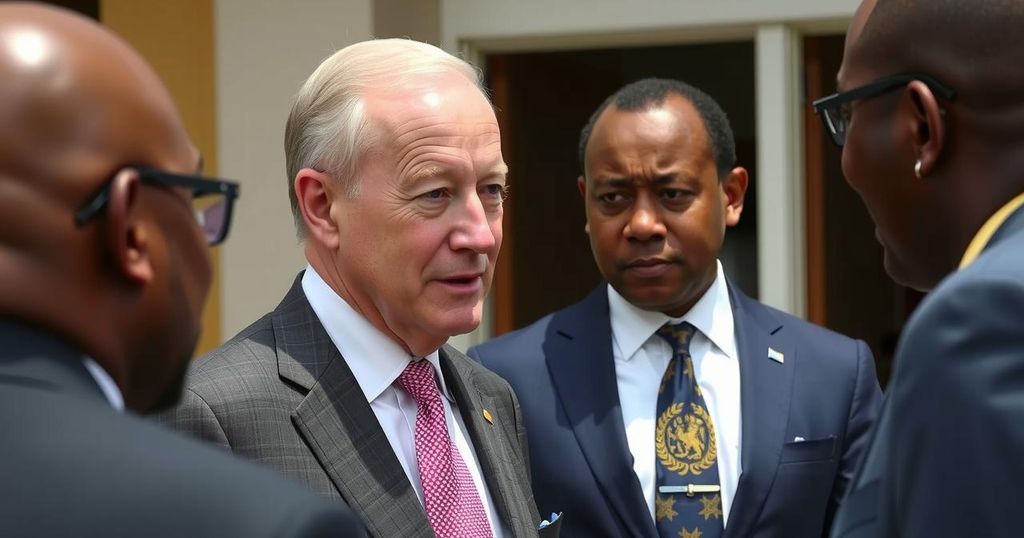President Joe Biden’s first presidential visit to Angola underscored the importance of U.S.-Angola relations, acknowledging their complex history of slavery while emphasizing future cooperation. Biden announced over $3 billion in investments for infrastructure and highlighted initiatives aimed at economic growth and combating corruption, marking a commitment to strengthening ties between the two nations.
President Joe Biden emphasized the significance of the relationship between the United States and Angola during his inaugural presidential visit to the African nation. Speaking at the National Museum of Slavery in Luanda, Biden acknowledged the painful history shared between the nations, stating, “There is nothing beyond our capacity if we work together.” He also highlighted the tragic legacy of slavery, which he termed the United States’ “original sin,” and underscored the importance of recognizing and confronting this history.
During his address, Biden noted that many enslaved Angolans were forcibly taken to the British colony in Virginia over 150 years before the United States attained independence. He identified the descendants of these individuals in the audience, inviting them to stand as a testament to their heritage. Biden reaffirmed the commitment of the U.S. to invest in Africa’s future through initiatives in clean energy, healthcare, and infrastructure. He noted over $3 billion in investments aimed at economic development, such as the Lobito Trans-Africa Corridor, which aims to generate quality employment and enhance the livelihoods of Angolans.
In discussions with Angolan President Joao Lourenco, Biden explored opportunities to strengthen trade and investment relations, stressing that the U.S. is “all-in on Africa’s future.” The announcement of a memorandum of understanding aimed at establishing a U.S.-Angola Commercial and Investment Partnership indicates a robust commitment to fostering economic ties and supporting Angola’s efforts to combat corruption while enhancing accountability and the rule of law. Overall, Biden’s visit marks a significant step in solidifying the partnership between the United States and Angola on various pivotal issues.
The United States and Angola share a complex history, marked by the transatlantic slave trade that forcibly transported many Angolans to what is now the U.S. This historical context establishes a foundational understanding for contemporary relations, as efforts to reconcile this past are pivotal in fostering a cooperative future. Biden’s visit underscores the importance of addressing historical grievances while looking forward to mutual economic and democratic development.
In conclusion, President Biden’s visit to Angola represents a historic opportunity to enhance U.S.-Angola relations while acknowledging the painful history that binds the two nations. Focusing on infrastructure and investment, Biden’s administration aims to foster economic growth and social justice in Angola. Moreover, addressing the historical injustices of slavery highlights the importance of building a relationship based on unity and the shared goal of securing a prosperous future for both nations.
Original Source: www.upi.com






